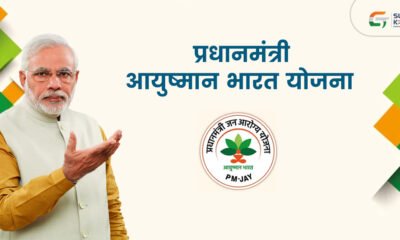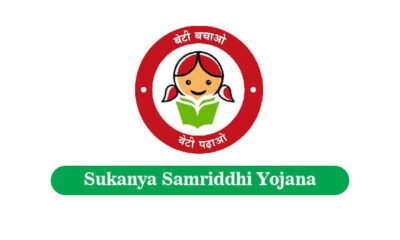Loans
Loan with Income Proof in India

Loans requiring income proof are an essential part of India’s diversified financial scene. Such loans obligate a borrower to provide documents proving their income, giving the lender assurance about their repayment capability. This article aims to project different aspects of income-proof loans in India, from types to eligibility criteria, documentation processes, and considerations.
Types of Loans Requiring Income Proof
1. Personal Loans
Personal loans are unsecured loans taken for multiple purposes. Income proof is essential to assure lenders of the borrower’s repaying ability.
2. Home Loans
For home loans, income proof is a necessary document since it deals with long-term commitments and large sums of money. Based on the proof of income, lenders estimate the credit limit or loan quantum and set conditions.
3. Car Loans
Though a car loan is secured by the car itself, income proof is still sought to verify the borrower’s repaying power for the monthly installments.
4. Educational Loans
Income proof of the co-applicant, usually a parent, is provided to sanction loans for higher studies, especially for large amounts.
5. Business Loans
For small and medium-scale enterprises, business income proof serves as collateral for obtaining loans for expansion or working capital.
Eligibility Criteria for Loans Against Income Proof
1. Age Limitations
Most lenders in India require applicants to be between 21 to 65 years at the time of loan maturity.
2. Income Limits
The minimum income eligibility criteria vary depending on the loan product or amount, generally ranging from ₹15,000 to ₹25,000 per month for salaried individuals.
3. Employment Stability
Salaried employees need to prove at least 1-2 years of continuous employment.
4. Credit Score
Most lenders prefer a score of 700+; however, some consider lower scores.
5. Debt-to-Income Ratio
Lenders look at the borrower’s current debts against their income, usually preferring a ratio of less than 50%.
Documents Required for Proof of Income
1. Salaried Employees
- Salary slips (previous 3-6 months)
- Bank statements reflecting salary credits
- Form 16 or ITR (last 1-2 years)
- Employment certificate or contract
2. Self-Employed Individuals
- Income Tax Returns (previous 2-3 years)
- Audited financial statements
- Bank statements (business and personal)
- GST returns (if applicable)
3. Professionals (Doctors, Lawyers, etc.)
- Practice registration certificate
- Income Tax Returns
- Bank statements
- Client invoices or fee receipts
4. Additional Documents
- PAN card
- Aadhaar card
- Proof of address (utility bills, passport, etc.)
- KYC documents
Advantages of Income-Proof Loans
1. Better Interest Rates
Loans with income proof often have lower interest rates because they are less risky for the lender.
2. Higher Loan Amounts
Verified income allows the lender to sanction a larger loan amount, useful for home or business loans.
3. Longer Repayment Tenures
Assured income allows lenders to offer longer repayment periods, reducing the burden of monthly EMIs.
4. Faster Approval
Clear income documentation can result in faster loan approvals compared to loans without income proof.
Challenges and Considerations
1. Irregular Income
It can be hard to prove steady income for freelancers or independent workers who earn by projects or gigs.
2. High Documentation Burden
Providing numerous income documents can be time-consuming and difficult to handle.
3. Privacy Concerns
Self-employed borrowers may be sensitive about revealing financial information.
4. Income Threshold Barriers
Loans with minimum income requirements may be inaccessible to low-income borrowers.
Alternative Options for Low-Income Borrowers
1. Microfinance Institutions (MFIs)
MFIs usually have more relaxed income criteria and serve low-income segments.
2. Self-Help Groups
These groups help village members access small loans with less rigid income proof demands.
3. Government Schemes
Government-sponsored loan schemes offer credit to low-income earners, often at subsidized rates.
4. Peer-to-Peer Lending
Some P2P platforms may have more lenient income criteria than traditional banks.
Tips to Get an Income Proof Loan
1. Maintain Accurate Financial Records
Keep records of income, especially if self-employed or running a small business.
2. Improve Credit Score
A good credit score can compensate for lower income. Regularly check and improve your score.
3. Reduce Existing Debts
Improving your debt-to-income ratio by repaying existing loans before applying for a new one.
4. Choose the Right Lender
Shop around for lenders who best match your income profile and loan requirements.
5. Be Transparent
Provide honest and truthful information about your financial condition to avoid last-minute issues.
Future Trends in Income-Proof Loans
1. Digital Verification
Increasing use of digital channels for instant income verification, reducing paperwork.
2. Use of Alternate Data
Lenders may use non-traditional data sources to analyze income and creditworthiness.
3. Loan Product Customization
Creating different loan products based on income patterns and professional categories.
4. Inclusion in Financial Planning
Loans linked with overall financial planning and wealth management services.
Conclusion
Loans against income proof in India offer a structured and dependable route for individuals and businesses to access credit. While they require strict documentation, they typically offer better terms and larger loan amounts. As the financial landscape evolves, innovative approaches to income verification and loan assessment are expected. Maintaining clear financial records and understanding lender requirements can help borrowers successfully access these loans, supporting personal financial goals and contributing to India’s credit ecosystem.
-

 Credit Card2 years ago
Credit Card2 years agoHow to Foreclose ICICI Credit Card EMI
-

 Saving Schemes2 years ago
Saving Schemes2 years agoHow to Check Sukanya Samriddhi Account Balance by SMS
-

 Credit Card2 years ago
Credit Card2 years agoHow to Unblock Credit Card ICICI
-

 Government Schemes1 year ago
Government Schemes1 year agoHow to Apply for Ayushman Bharat Yojana: A Step-by-Step Guide
-

 Saving Schemes2 years ago
Saving Schemes2 years agoHow to Open a Sukanya Samriddhi Account Online: A Step-by-Step Guide
-

 Government Schemes2 years ago
Government Schemes2 years agoGovernment Schemes for Girl Child
-
Credit Card2 years ago
How to Check ICICI Credit Card Balance
-

 Credit Card2 years ago
Credit Card2 years agoHow to Change Address in ICICI Credit Card
